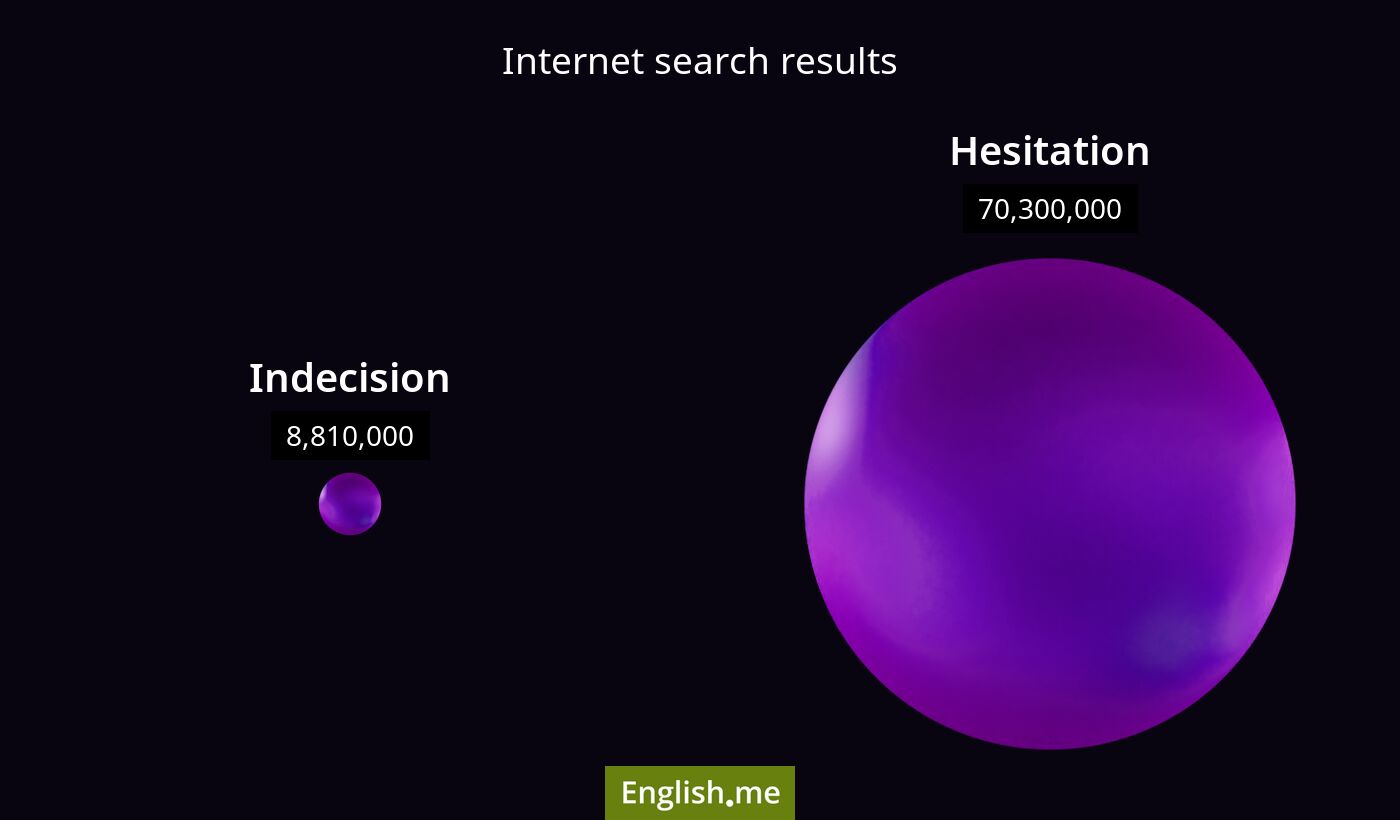Teetering between choices: "indecision" vs. "hesitation"
Reviewed and edited by  Lloyd Cooper 16/11/2024, 04:53
Lloyd Cooper 16/11/2024, 04:53
English.me team member

 What is similar?
What is similar?
Both "indecision" and "hesitation" relate to uncertainty or difficulty in making a decision or taking action.
 What is different?
What is different?
Indecision typically refers to a longer-term inability to make a decision, often due to lack of confidence or clarity. Hesitation is more about the short pause before making a decision or taking action, often due to caution or doubt.
 Which one is more common?
Which one is more common?

 Examples of usage
Examples of usage
Indecision- Her indecision about which college to attend was causing her a lot of stress.
- The team's indecision led to missed opportunities in the market.
- John's indecision was evident as he stood in the store, unable to choose a gift.
- After a brief hesitation, she jumped into the pool.
- There was hesitation in his voice as he delivered the news.
- Despite his hesitation, he eventually agreed to the plan.

 English
English español
español française
française italiano
italiano deutsche
deutsche 日本語
日本語 polski
polski česky
česky svenska
svenska Türkçe
Türkçe Nederlands
Nederlands